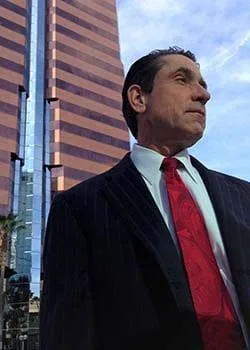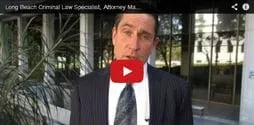For persons over the age of 21, the consumption of alcohol is legal. When a person has had so much to drink that he or she cannot care for their own safety or that of others, police can make an arrest for the crime of drunk in public, California Penal Code section 647(f). However, police will often arrest persons who have been drinking and are even drunk but are able to care for there own safety and that of others. Long Beach criminal attorney, Matthew Kaestner, has successfully defended clients charged with alcohol related crimes including being "drunk in public" for over two decades. What follows is a brief synopsis of the law regarding drunk in public.
Long Beach frequently hosts major community events such as the Long Beach Grand Prix, the downtown New Years Eve party, and other events where alcohol is served. Belmont Shore, Pine Avenue, the Pike and other hot spots for night time entertainment abound. Major conventions are a regular occurrence in Long Beach.
Oftentimes, locals and visitors who have been drinking will have contact with the Long Beach Police. Occasionally, partiers are taken to jail for drinking "too much" and being in public. In Long Beach, and throughout the state, Penal Code section 647(f)prohibits certain "disorderly conduct" including public intoxication. The crime, however, can be difficult for the government to prove. An experienced criminal lawyer can defend against a criminal violation of the drunk in public law.
Penal Code section 647(f) makes someone guilty of a misdemeanor: "Who is found in any public place under the influence of intoxicating liquor, any drug, controlled substance, toluene, or any combination of any intoxicating liquor, drug, controlled substance, or toluene, in a condition that he or she is unable to exercise care for his or her own safety or the safety of others, or by reason of his or her being under the influence of intoxicating liquor, any drug, controlled substance, toluene, or any combination of any intoxicating liquor, drug, or toluene, interferes with or obstructs or prevents the free use of any street, sidewalk, or other public way."
Therefore, in order to be guilty of the crime of being "drunk in public" in California, the government must proove that the person charged with the crime was so drunk as to be "unable to exercise care for his or her own safety or that of others" or "obstruct[ed] the free use of a street or sidewalk."
Although someone who is so drunk that they pass out on the sidewalk or pavement and got that drunk of their own volition (didn't have their drink spiked), might have a tough time defending against the charge, most arrests are made by the police based on an officer's gut feeling about the person's level of intoxication.
Thus, many "drunk in public" arrests result from police contacts that turn bad because of a failure of the arrested person to pass the "attitude" test and not any sort of alcohol test. Many "drunk in public" charges are brought by local prosecutors along with "resisting arrest" charges (Penal Code section 148). There is no set blood alcohol level that is so high as to be criminal in and of itself.
Long Beach criminal lawyer, Matthew Kaestner, is a criminal defense attorney who has successfully defended many drunk in public and resisting arrest cases in the last 25 years. Just last year, in Long Beach, attorney Kaestner defended a client who summoned the police after being abused by bouncers at a local bar. The responding officers arrested the client and assaulted him with black jacks. The client's breath test result was only .08. After a three day jury trial, the client was acquitted of all charges. The client is now seeking civil damages against the bar and the police.
If you've suffered the embarrassment of a drunk in public arrest whether or not you were charged with resisting arrest, expert legal advice is necessary. It is rarely wise to plead guilty just to get the matter quickly behind you. The charge of drunk in public is a crime and can have life long consequences. A criminal record should be avoided at all costs. If you were arrested in Long Beach while visiting from out of town, attorney Kaestner can appear for you and fight the case while you remain in your home state or city. Long Beach criminal lawyer Matthew Kaestner will take your call directly. Your important questions about a drunk in public arrest and the criminal process will be answered. Long Beach criminal attorney Matthew Kaestner can be contacted personally at (562) 437-0200.




